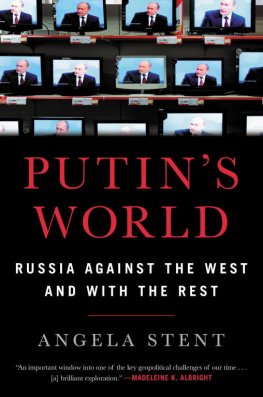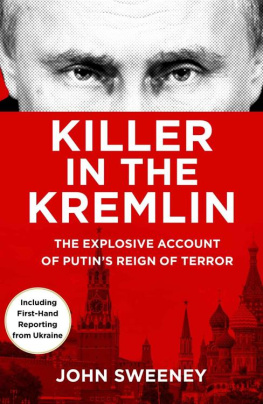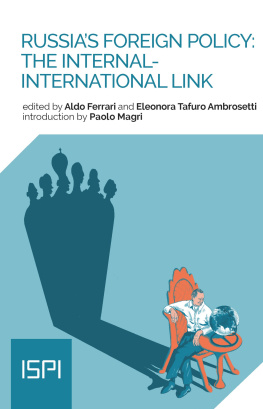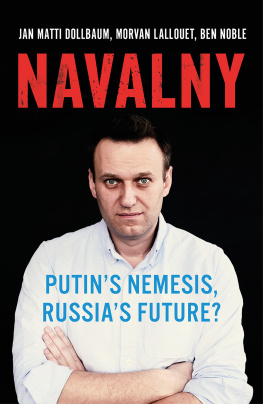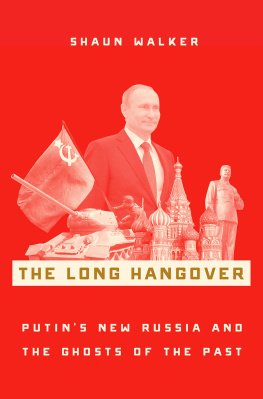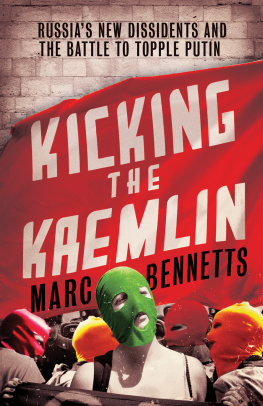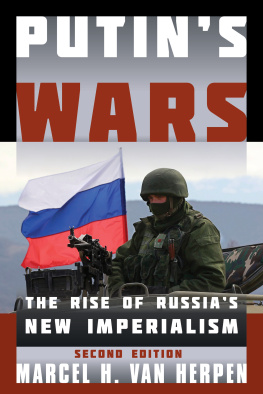
Putins Fascists
This book examines the relationship between the Putin regime and Russkii Obraz, a neo-Nazi organization that became a major force on Russias radical nationalist scene in 200810. It shows how Russkii Obrazs rise was boosted by the regimes policy of managed nationalism, which mobilised radical nationalist proxies against opponents of authoritarianism. In return for undermining moderate nationalists and pro-democracy activists, Russkii Obraz received official support and access to public space. What made this collaboration politically hazardous for the Kremlin was Russkii Obrazs neo-nazi ideology and its connections to BORN, a terrorist group responsible for a series of high-profile killings. When security forces captured the ringleader of BORN, they precipitated the destruction of Russkii Obraz and a crisis for managed nationalism. Using court records and extensive media and internet sources, this book sheds new light on the complex interaction between the Kremlin, the far-right, and neo-Nazi skinheads during Russias descent into authoritarianism.
Robert Horvath is a Senior Lecturer in Politics in the Department of Politics, Media and Philosophy at La Trobe University, Australia.
BASEES/Routledge Series on Russian and East European Studies
For a full list of available titles please visit: https://www.routledge.com/BASEES-Routledge-Series-on-Russian-and-East-European-Studies/book-series/BASEES
Series editors:
Sociology and anthropology: Judith Pallot (President of BASEES and Chair), University of Oxford
Economics and business: Richard Connolly, University of Birmingham
Media and cultural studies: Birgit Beumers, University of Aberystwyth
Politics and international relations: Andrew Wilson, School of Slavonic and East European Studies, University College London
History: Matt Rendle, University of Exeter
This series is published on behalf of BASEES (the British Association for Slavonic and East European Studies). The series comprises original, high-quality, research-level work by both new and established scholars on all aspects of Russian, Soviet, post-Soviet and East European Studies in humanities and social science subjects.
131 Tolstoy's Political Thought
Christian Anarcho-Pacifist Iconoclasm Then and Now
Alexandre Christoyannopoulos
132 Azerbaijan and the European Union
Eske Van Gils
133 Freedom of Expression in Russia's New Mediasphere
Edited by Marille Wijermars and Katja Lehtisaari
134 The Russian State and Russian Energy Companies, 19922018
Ingerid M. Opdahl
135 The Making of Kropotkin's Anarchist Thought
Richard Morgan
136 From German Knigsberg to Soviet Kaliningrad
Appropriating Place and Constructing Identity
Jamie Freeman
137 Governing the Soviet Union's National Republics
The Second Secretaries of the Communist Party
Saulius Grybkauskas
138 Putin's Fascists Russkii Obraz and the Politics of Managed Nationalism in Russia
Robert Horvath
139 Building Communism and Policing Deviance in the Soviet Union Residential Childcare, 19581991
Mirjam Galley
140 Translating Great Russian Literature
The Penguin Russian Classics
Cathy McAteer
First published 2021
by Routledge
2 Park Square, Milton Park, Abingdon, Oxon OX14 4RN
and by Routledge
52 Vanderbilt Avenue, New York, NY 10017
Routledge is an imprint of the Taylor & Francis Group, an informa business
2021 Robert Horvath
The right of Robert Horvath to be identified as author of this work has been asserted by him in accordance with sections 77 and 78 of the Copyright, Designs and Patents Act 1988.
All rights reserved. No part of this book may be reprinted or reproduced or utilised in any form or by any electronic, mechanical, or other means, now known or hereafter invented, including photocopying and recording, or in any information storage or retrieval system, without permission in writing from the publishers.
Trademark notice: Product or corporate names may be trademarks or registered trademarks, and are used only for identification and explanation without intent to infringe.
British Library Cataloguing-in-Publication Data
A catalogue record for this book is available from the British Library
Library of Congress Cataloging-in-Publication Data
A catalog record has been requested for this book
ISBN: 978-0-367-47413-3 (hbk)
ISBN: 978-1-003-03542-8 (ebk)
Typeset in Times New Roman
by SPi Global, India
For Jane and James
During the writing of this book I have incurred debts to many people. The greatest is to my brilliant research assistant Grigorii Durnovo, who conducted a series of interviews and helped to clarify numerous points of historical and linguistic detail. His review of this manuscript improved it immeasurably, both in terms of its accuracy and its argumentation. Any remaining errors, of course, are mine.
I am also grateful to Aleksei Pyatkovskii, who conducted interviews, arranged meetings, gave me materials from his personal archive, and enlarged my understanding of Russian politics in many entertaining conversations.
Aleksandr Verkhovskii of SOVA Center helped me to understand the place of Russkii Obraz in the broader context of Russian nationalism and forced me to re-examine some of my basic assumptions. His colleague Nataliya Yudina provided me with indispensable advice on sources and some crucial quotations.
The historian Yaroslav Leontev shaped my argument in important ways, arranged interviews with Antifa activists, and helped me to understand the enduring importance of Stanislav Markelov.
Misha Gabowitsch offered insightful criticisms of earlier versions of this research that had a profound impact upon my argument. Aleksandr Tarasov enlarged my understanding of the far-right scene and the early interactions between the Kremlin and the skinhead milieu. During long discussions over dinner, the late Vladimir Pribylovskii shared his encyclopedic knowledge of nationalist politics. Olga Trusevich of Memorial illuminated the BORN trials and how the human rights community responded to them.
I learned much from conversation or correspondence with Stefan Auer, Miriam Bankovsky, Boris Belenkin, John Besemeres, Nick Bisley, Roland Burke, John Crowfoot, Mark Edele, Julie Fedor, Steven Fortescue, Masha Gessen, Graeme Gill, Emma Gilligan, Leslie Holmes, Danielle Jackman, Adrian Jones, Valerii Kadzhaya, Ed Kline, Pl Kolst, Mariya Kravchenko, Natasha Kravchenko, Veera Laine, James Leibold, Charlotte Lever, Anna-Sophie Maass, Katherine Newman, Dmitrii Okrest, Evgenii Proshechkin, Geoffrey Roberts, Michael Scammell, Anton Shekhovtsov, Valerii Solovei, Bec Strating, Sofia Tipaldou, Andreas Umland, Tom Weber, Stephen Wheatcroft, Kyle Wilson, and Natasha Wilson.
I am grateful in other ways to Judith Armstrong, Judith Brett, Holly Crocket, Pip Cummings, Eleanor Davey, Masha Davidenko, Karla Drazenovic, Genie Greig, Gabor Horvath, James Horvath, Leonie Horvath, Olga Kosares, Marina Loane, Louis and Jessie Maroya, Robert Manne, Anita McKinna, Yamini Narayanan, Jim Nolan, Melinda Rankin, Yurii Nechiporenko, Michael OKeefe, Margaret Olczak, Ron Ridley, Therese Ridley, Katka Zappner, and Viktor Zappner.


